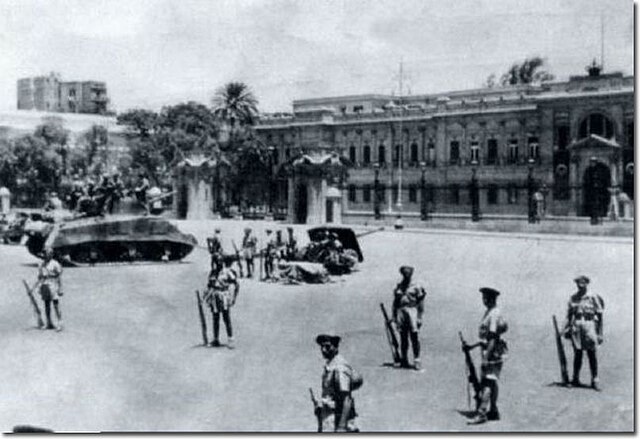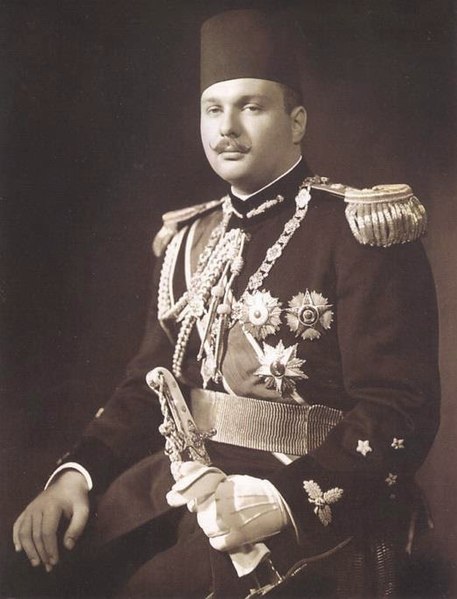Egypt was a major battlefield in the North African campaign during the Second World War, being the location of the First and Second Battles of El Alamein. Legally an independent kingdom since 1922, and an equal sovereign power in the condominium of Anglo-Egyptian Sudan, in reality Egypt was heavily under the coercive influence of the United Kingdom, a state of affairs that had persisted since the United Kingdom intervened militarily in the Orabi Revolt in favour of Egypt's Khedive, Tawfik Pasha, in 1882, subsequently occupying the country.
World War II affected many lives in Egypt. Commonwealth graves of victims shown here in Marsa Matrouh, Egypt
Saad Zaghloul Pasha with members of Al Wafd party.
Anti-Nazi poster used in Egypt: the text reads "My Struggle, by Adolf Hitler, the Sculptor", and depicts a bloody swastika and dead civilians.
British troops at Abdeen Palace
Farouk I was the tenth ruler of Egypt from the Muhammad Ali dynasty and the penultimate King of Egypt and the Sudan, succeeding his father, Fuad I, in 1936 and reigning until his overthrow in a military coup in 1952.
Official portrait, 1946
Farouk I, c. 1937
Farouk saluting Egyptian citizens assembled in Abdeen Square in Cairo, c. 1937
Coin issuance after Farouk's coronation, 1937








